What’s different in the internet age?
Barriers to mass communication are lower. With platforms such as Facebook and Twitter, modern-day purveyors of disinformation need only a computer or smartphone and an internet connection to reach a potentially huge audience — openly, anonymously or disguised as someone or something else, such as a genuine grassroots movement. In addition, armies of people, known as trolls, and so-called internet bots — software that performs automated tasks quickly — can be deployed to drive large-scale disinformation campaigns.
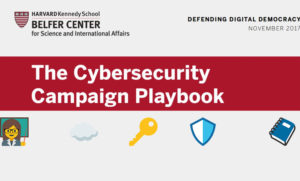 From Argentina to Mexico, political campaigns are battling cyberattacks in Latin America. This year, the International Republican Institute (IRI) continues its partnership with digital democracy pioneers to help political campaigns combat cybersecurity threats in Latin America and beyond, IRI’s Amy Studdart and Peter Stansbery observe:
From Argentina to Mexico, political campaigns are battling cyberattacks in Latin America. This year, the International Republican Institute (IRI) continues its partnership with digital democracy pioneers to help political campaigns combat cybersecurity threats in Latin America and beyond, IRI’s Amy Studdart and Peter Stansbery observe:
In recent years, cyberattacks have become an increasing problem in Latin America. In fact, the number of reported ransomware cases grew by 131 percent in 2016 alone. One study by Kaspersky Lab revealed that in the past year there were a registered 45 cyberattacks per second. As recently as August 2019, hackers leaked 700 GB of the Argentine government’s data using the Twitter account LaGorraLeaks2.0. ….Other cyberattacks in Latin America have targeted political campaigns and elections to undermine the democratic process in the region. In 2018, for instance, hackers launched a distributed denial of service (DDoS) attack during the final Mexican presidential election debate …During Brazil’s 2018 general elections, cybersecurity firm FireEye exposed coordinated Russian cyber interference.
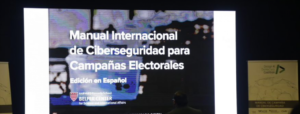
IRI LAC
To counteract these threats in Argentina, they add, IRI partnered with the National Democratic Institute (NDI)* and the Harvard Kennedy School’s Belfer Center to launch the Defending Digital Democracy (D3P)’s “Cybersecurity Campaign Playbook: Spanish Edition“. RTWT
The Hybrid Warfare Analytical Group has created an infographic (above) covering top 6 Russian narratives on Europe based on “Images of European Countries on Russian TV,” joint research by Estonian Center of Eastern Partnership and Ukraine Crisis Media Center, the European Values Center for Security Policy adds. Russian propaganda has been trying to discredit Europe in numerous ways, nevertheless these six narratives have taken hold the most: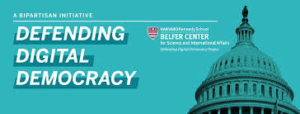
- “Life in Europe is difficult and insecure as the authorities are unable to secure order”
- “Decaying Europe is close to tolerating paedophilia and incest”
- “European unity and identity are enforced which causes public dissatisfaction and leads to overwhelming protests”
- “Europe caused the refugee crisis and is now choking on it”
- “Terrorism is omnipresent in Europe due to the influx of immigrants and multiculturalism”
- “The sanctions are pointless as they cause more damage to Europe than to Russia”
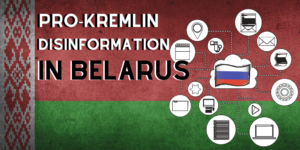 “It is wrong to suggest Russian meddling in US elections is anything like US democracy support abroad,” IRI’s Daniel Twining tweeted. “One is like a doctor administering poison, the other medicine. As @NDI’s Ken Wollack @kwollack & I argue, Republicans & Democrats agree on this.”
“It is wrong to suggest Russian meddling in US elections is anything like US democracy support abroad,” IRI’s Daniel Twining tweeted. “One is like a doctor administering poison, the other medicine. As @NDI’s Ken Wollack @kwollack & I argue, Republicans & Democrats agree on this.”
In December 2018, the EU introduced its Action Plan against Disinformation – a comprehensive package to tackle deliberately deceptive posts online – over the short and long term. That includes the new Rapid Alert System. Hear from Roberto Viola, Director-General of DG CONNECT, and from Lutz Güllner, Head of EEAS Strategic Communications, about it (above).
*Core partners of the National Endowment for Democracy.
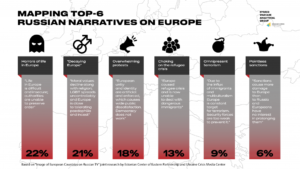 Disinformation, now known as fake news, has tainted public discourse for centuries, even millennia, notes . It’s been amplified in our digital age as a weapon of fearmongers, mob-baiters and election-meddlers to widen social fissures, subvert democracy and boost authoritarian regimes. Companies such as Facebook, Twitter and Google are under pressure to take action, she writes in a helpful Q&A for The Washington Post:.
Disinformation, now known as fake news, has tainted public discourse for centuries, even millennia, notes . It’s been amplified in our digital age as a weapon of fearmongers, mob-baiters and election-meddlers to widen social fissures, subvert democracy and boost authoritarian regimes. Companies such as Facebook, Twitter and Google are under pressure to take action, she writes in a helpful Q&A for The Washington Post:.
 From Argentina to Mexico, political campaigns are battling cyberattacks in Latin America. This year, the International Republican Institute (IRI) continues its partnership with digital democracy pioneers to help political campaigns combat cybersecurity threats in Latin America and beyond,
From Argentina to Mexico, political campaigns are battling cyberattacks in Latin America. This year, the International Republican Institute (IRI) continues its partnership with digital democracy pioneers to help political campaigns combat cybersecurity threats in Latin America and beyond, 

 “It is wrong to suggest Russian meddling in US elections is anything like US democracy support abroad,” IRI’s
“It is wrong to suggest Russian meddling in US elections is anything like US democracy support abroad,” IRI’s 





